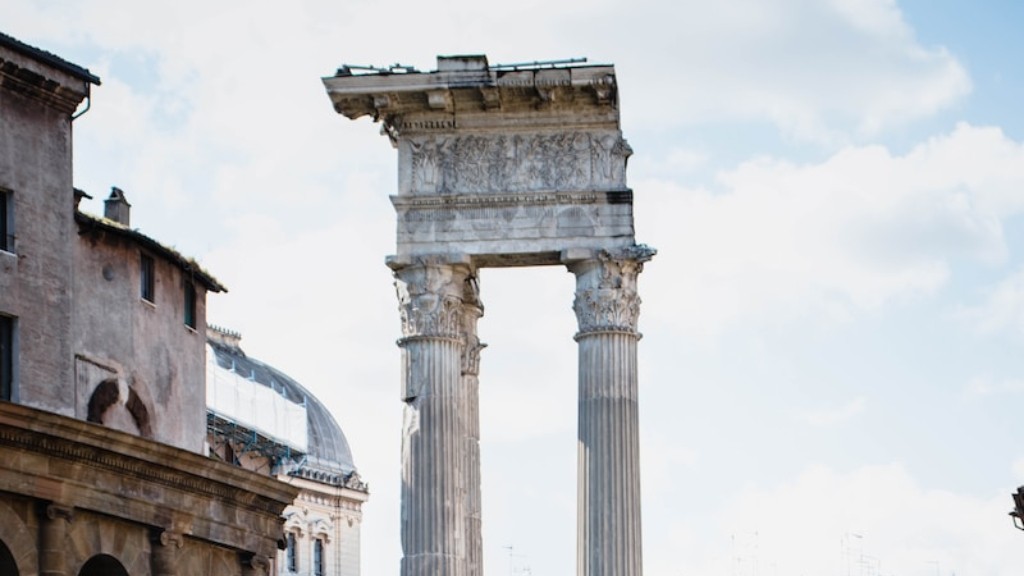How Women Were Viewed in Ancient Greece
Ancient Greece, with its rich history and cultural heritage, offers a fascinating window into the perceptions and roles of women in the past. In this article, we will explore the various aspects of how women were viewed in ancient Greece, shedding light on both the limitations and opportunities they faced.
The Ideal of Womanhood
In ancient Greek society, the ideal woman was often seen as a “paragon of virtue,” embodying qualities such as chastity, modesty, and loyalty. This idealized image placed women in a subordinate position to men, emphasizing their domestic roles as wives, mothers, and caretakers of the household. It was believed that women’s primary purpose was to bear children and ensure the continuation of the family line.
Restrictions on Women
While ancient Greek women held significant responsibilities within the household, their participation in public life was severely limited. They were generally excluded from political, legal, and religious activities, with few exceptions. Women were expected to remain secluded within the privacy of their homes, away from the affairs of the city-state.
Marriage was a crucial event in a woman’s life, marking the transition from her father’s authority to her husband’s. It was often arranged by her parents, with the primary consideration being the preservation of social status and family honor. As married women, they were expected to fulfill their marital duties, maintain fidelity, and provide heirs for their husbands.
Education was another area where women faced restrictions. While some wealthier women received a basic education at home, most girls were not formally educated like their male counterparts. Their education focused primarily on domestic skills and preparing them for their future roles as wives and mothers.
Exceptions and Influential Women
Despite the prevailing gender roles, there were a few exceptions to the limited roles of women in ancient Greece. Some women managed to gain prominence and exercise influence in various areas, challenging societal norms.
Priestesses and Oracles
One avenue for women to achieve influence was through religious roles, particularly as priestesses or oracles. The most famous example is the Oracle of Delphi, where the Pythia, a woman chosen to transmit the messages of the gods, held considerable power and respect. Priestesses in other temples also held influential positions, allowing them to exert authority and impact the lives of worshippers.
Tragedians and Poets
Women also made their mark in ancient Greek tragedy and poetry. Despite not being allowed to perform on stage, female characters played important roles in the works of famous playwrights like Euripides and Sophocles. These characters often offered a critical perspective on societal norms and challenged traditional gender roles.
Hetaerai
Hetaerai were a class of educated, independent women who served as companions to wealthy men. They were known for their wit, charm, and intellectual pursuits, blurring the lines between the roles of men and women in society. While they may have been marginalized to some extent, their existence challenged prevailing assumptions about women’s limited capabilities.
Ancient Greek Women in Art and Literature
The portrayal of women in ancient Greek art and literature provides further insight into societal attitudes. While ideals such as beauty and femininity were celebrated, women were often depicted in a more restricted and passive role compared to men.
In sculpture and pottery, women were typically depicted as idealized figures, emphasizing their youth, beauty, and grace. However, their portrayal often adhered to the societal expectations of modesty and domesticity.
Literary works, like Homer’s epic poems the Iliad and the Odyssey, presented women as objects of desire or prizes to be won. These narratives reinforced the traditional gender roles and reinforced the societal expectations placed on women.
Changing Perspectives
It is essential to note that perspectives on women in ancient Greece were not monolithic and evolved over time. Different city-states had varying degrees of gender roles and expectations. The treatment and status of women also depended on one’s social class, wealth, and personal circumstances.
Despite the limitations imposed on them, some women managed to play influential roles and challenge societal norms. The existence of exceptions and the portrayal of women in art and literature indicate that not all ancient Greeks adhered strictly to the idealized image of womanhood.
Final Thoughts
Studying how women were viewed in ancient Greece provides valuable insights into the history of gender roles and society. While the prevailing perception of women as subordinate and limited in their opportunities is undeniable, exceptions and varied perspectives demonstrate the complexity of ancient Greek society.




